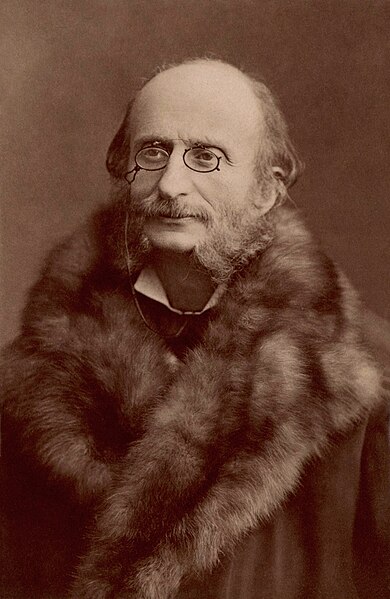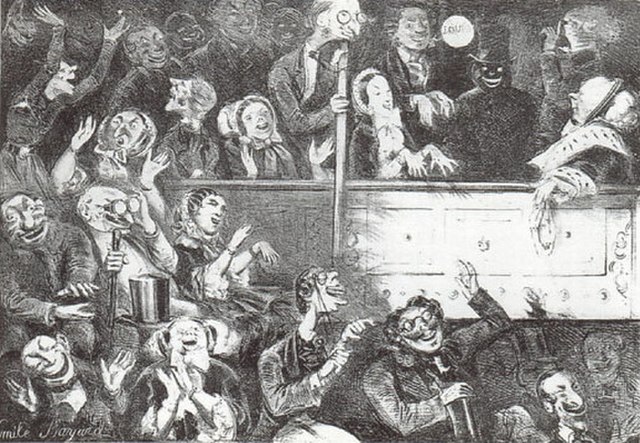Jacques Offenbach 20 June 1819 – 5 October 1880) was a German-born French composer, cellist and impresario. He is remembered for his nearly 100 operettas of the 1850s to the 1870s, and his uncompleted opera The Tales of Hoffmann. He was a powerful influence on later composers of the operetta genre, particularly Franz von Suppé, Johann Strauss II and Arthur Sullivan. His best-known works were continually revived during the 20th century, and many of his operettas continue to be staged in the 21st. The Tales of Hoffmann remains part of the standard opera repertory.
Offenbach by Nadar
Offenbach in the 1840s
Offenbach as a young cello virtuoso: drawing by Alexandre Laemlein from 1850
The composer-conductor caricatured, 1858
Operetta is a form of theatre and a genre of light opera. It includes spoken dialogue, songs, and dances. It is lighter than opera in terms of its music, orchestral size, length of the work, and at face value, subject matter. Apart from its shorter length, the operetta is usually of a light and amusing character. It sometimes also includes satirical commentaries.
The audience at the Théâtre des Bouffes-Parisiens, the birthplace of Jacques Offenbach's operettas. Caricature of 1860 by Émile Bayard.
A Columbia Records advertisement for a recording of Rita Montaner in a production of Eliseo Grenet and Ernesto Lecuona's Niña Rita, o, La Habana en 1830, an operetta from the Spanish genre of zarzuela.
Cover page of Boccaccio, oder Der Prinz von Palermo (Boccaccio, or the Prince of Palermo) by Franz von Suppé in 1879. An example of early Viennese operetta.
Playbill for a revival of Orphée aux enfers








